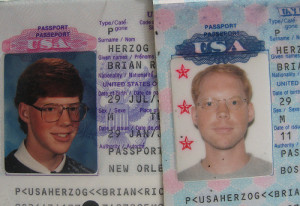 It’s no secret that data privacy is not what it should be. While the technology races forward at breakneck speed the legal and regulatory systems are slow to catch up. This leads to a huge gap between the two, one that is being thrown into sharp relief in the wake of British Airway’s announcement that they will be Googling some of their passengers and creating “dossiers” on them.
It’s no secret that data privacy is not what it should be. While the technology races forward at breakneck speed the legal and regulatory systems are slow to catch up. This leads to a huge gap between the two, one that is being thrown into sharp relief in the wake of British Airway’s announcement that they will be Googling some of their passengers and creating “dossiers” on them.
The program is called “Know Me,” and is touted as an attempt to improve passenger recognition and customer service. British Airways plans to create “dossiers” on passengers, their stated purpose is to offer 4500 “personal recognition messages” by the end of this year.
On the one hand there is certainly merit to the idea of providing better, more personalized service. On the other hand their approach is just plain creepy.
No matter how entrenched it is, online technology is still a new thing. People are often unaware of just how much data they have made accessible, or how easy it is to unearth. Go ahead and Google your own name if you don’t believe me. This is all legally accessible information, and from that standpoint there is nothing wrong with BA’s strategy. On the other hand the ethics are a bit murky and it can certainly be seen as invasive by some.
Jared Newman of PC World has a few comments:
Still, there are problems with the way British Airways is doing this. Some customers just don’t want to be bothered — especially famous ones — so it’s presumptuous for the airline to think no one will mind being stalked on Google for the purpose of a greeting.
A better way might be to let people opt in to such a service through Facebook or Twitter. That way, the information would be more reliable and less creepy, and would only affect willing participants.
You’ll note how often this is invoked in cases like this. The biggest complaint about Facebook’s constantly shifting privacy policies is that they are automatically enacted and the user must opt out of them manually. This is flagrantly against accepted best practices for the industry.
Newman goes on to note another risk:
Using Google for image search is also a slippery slope that could lead to broader Internet data mining. Of course, advertisers already do this through tracking cookies, but it’s much creepier to have your browsing habits come back to you in the real world than in a targeted online ad.
Make no mistake, this is the digital equivalent of the TSA pat downs we have all grown to know and love. Fox News reports one privacy watchdog’s reaction:
Nick Pickles, director of privacy campaign group Big Brother Watch, told The Standard: ‘Since when has buying a flight ticket meant giving your airline permission to start hunting for information about you on the Internet?’
No matter how you dice it BA is going to get some bad press from this. People are becoming more reluctant of measures that resembles cyber-stalking.
What do you think? Would you fly British Airways knowing about this policy?
Image by Brian Herzog, used under its Creative Commons license